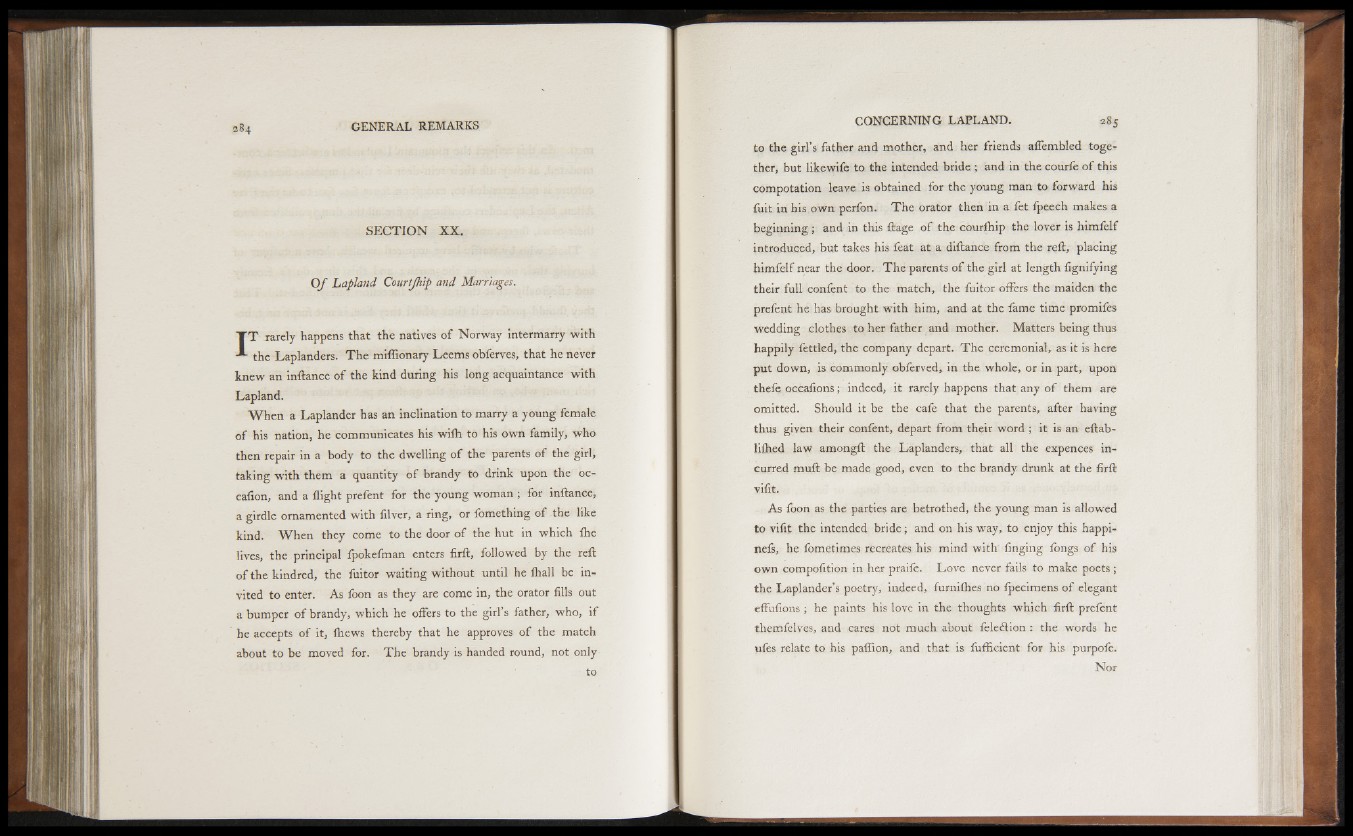
SECTION XX.
O f Lapland Courtjhip and Marriages.
IT rarely happens that the natives o f Norway intermarry with
the Laplanders. T h e miffionary Leems obferves, that he never
knew an inftance of the kind during his long acquaintance with
Lapland.
When a Laplander has an inclination to marry a young female
of his nation, he communicates his wiih to his own family, who
then repair in a body to the dwelling of the parents of the girl,
taking with them a quantity of brandy to drink upon the oc-
caiion, and a flight prefent for the young woman ; for inftance,
a girdle ornamented with iilver, a ring, or iomething of the like
kind. When they come to the door of the h u t in which flie
lives, the principal fpokefman enters firft, followed by the reft
o f the kindred, the fuitor waiting without until he ihall be invited
to enter. As foon as they are come in, the orator fills out
a bumper of brandy, which he offers to the girl’s father, who, if
he accepts of it, ihews thereby that he approves of the match
about to be moved for. The brandy is handed round, not only
to
to the girl’s father and mother, and her friends aflembled together,
but likewife to the intended bride ; and in the courfe of this
compotation leave is obtained for the young man to forward his
fuit in his own perfon. T h e orator then in a fet fpeech makes a
beginning ; and in this ftage o f the courfhip the lover is himfelf
introduced, but takes his feat at a diftance from the reft, placing
himfelf near the door. The parents of the girl at length fignifying
their full confent to the match, the fuitor offers the maiden the
prefent he has brought with him, and at the fame time promifes
wedding clothes to her father and mother. Matters being thus
happily fettled, the company depart. T h e ceremonial, as it is here
put down, is commonly obferved, in the whole, or in part, upon
thefe occafions; indeed, it rarely happens that any o f them are
omitted. Should it be the cafe that the parents, after having
thus given their confent, depart from their word ; it is an eftab-
lifhed law amongft the Laplanders, th a t all the expences incurred
muft be made good, even to the brandy drunk at the firft
vifit.
As foon as the parties are betrothed, the young man is allowed
to vifit the intended bride; and on his way, to enjoy this happi-
nefs, he fometimes recreates his mind with finging iongs o f his
own compofition in her praife. Love never fails to make poets ;
the Laplander’s poetry, indeed, furnifhes no fpecimens of elegant
effufions; he paints his love in the thoughts which firft prefent
themfelves, and cares not much about fele&ion : the words he
ufes relate to his paflion, and that is fufficient for his purpofe.
N o r